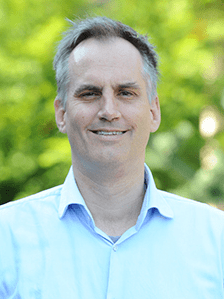Davies Presents at International Monetary Fund and Asian Development Bank Davies work looks at the setting of exchange rates in resource-rich developing countries.
Over the summer, Martin Davies, associate professor of economics at Washington and Lee University, presented new research titled “A simple model of internal and external balance for resource-rich developing countries” at the International Monetary Fund and the Asian Development Bank.
With co-author Marcel Schröder of the Asian Development Bank, Davies looks at the setting of exchange rates in resource-rich developing countries (RRDCs), a group of about 50 countries defined by low-income status and high dependency on non-renewable resource exports.
“With few exceptions, these countries suffer from the ‘resource curse,’ struggling to convert resource wealth into sustainable economic development,” said Davies. “One of the primary reasons for this is the macroeconomic instability driven by commodity boom-bust cycles.”
Davies’ research develops a new approach to determining equilibrium in the real exchange rate in RRDCs, finding evidence that government take, or the ratio of fiscal resource revenue to resource output, is a key determinant.
“This is policy-relevant research, and it has been good to get some interest in it from major international development institutions,” Davies said. “We find that changes in the government often require difficult adjustment to the real exchange rate, and that to reduce macroeconomic instability, countries should undertake steps to stabilize the government over time.”
This work is the first in a planned sequence of papers that examine the macroeconomic vulnerabilities of RRDCs and is inspired by an ongoing research engagement in Papua New Guinea.
In early July 2021, Davies also presented a public lecture titled “Path to Kina Convertibility: a Study of the Foreign Exchange Market of Papua New Guinea” at the Development Policy Centre at the Crawford School of Public Policy, Australian National University. The Crawford School is a globally ranked top five public policy school, and Davies has been a visiting fellow there since 2017.
If you know a W&L faculty member who has done great, accolade-worthy things, tell us about them! Nominate them for an accolade.
 Martin Davies
Martin Davies
You must be logged in to post a comment.